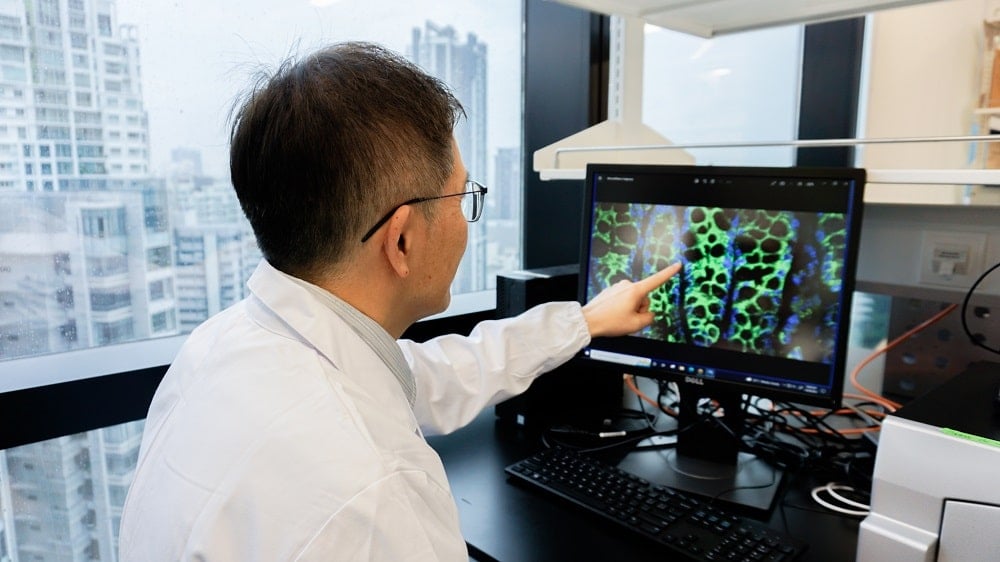Nanyang Technological University, Singapore (NTU Singapore) has created the Centre for Microbiome Medicine – a research facility that aims to improve human health and find new ways to treat diseases by leveraging the microbiome, which are naturally present microorganisms that play a vital role in our wellbeing.
The research centre at NTU Singapore’s Lee Kong Chian School of Medicine (LKCMedicine) will work with partners including the National Healthcare Group, Imperial College London, and the Singapore-based precision gut microbiome company AMILI to unravel the mechanisms behind microbiome and diseases.
Thousands of different species of microbes including bacteria and fungi live in and on the human body. In healthy individuals, the microbes exist peacefully. However, in unhealthy individuals, the imbalance of the microbes causes the body to be more susceptible to disorders such as obesity, metabolic diseases, cancers, lung, and skin diseases.
The new research centre is led by programme director, Sunny Wong, from LKCMedicine, and the facility will focus its research in the areas of nutrition and metabolism, airway and environment, cancers, as well as infections and other neurological and skin diseases.
Microbiome connection to diseases
Using human sample collections, advanced DNA sequencing, and laboratory experiments, researchers will look at how the microbiome causes a range of diseases like obesity, diabetes, fatty liver, and chronic lung diseases like bronchiectasis.
With a deepened understanding of how microbiome is related to these diseases, researchers hope to translate their discoveries into improved diagnostics and new treatments for patients.
Besides working with local healthcare institutions and international partners, the center will also foster collaborations among scientists from many disciplines at NTU Singapore including those from the Singapore Centre for Environmental Life Sciences Engineering (SCELSE), College of Science (COS) and College of Engineering (COE), to develop innovative solutions for microbiome related diseases.
In support of microbiome research, the new facility also received a S$2.5 million (US$1.8 million) gift from Petrina Leong, Ms Sandy Leong, and Mr Jimmy Leong through the Madam Wang Lee Wah Memorial Fund.
NTU Singapore will focus on obesity
In Singapore, 8.9% of the adult population is obese, and the rate of obesity in the country is also at its highest level since 2010.
With obesity on the rise in Singapore and globally, and the associated increased health risks including diabetes, fatty liver, cardiovascular diseases, and even some cancers, tackling obesity through the microbiome may be a new way forward.
While the disease is commonly associated with unhealthy diets and low physical activity, the gut microbiome is an important interface. Studies have suggested that microbes in the gut can affect our eating habits and our ability to lose or gain weight.
One focus area of the new center is to study how ‘good’ and ‘bad’ bugs in the microbiome can be harnessed to combat the rise in obesity and its associated diseases. Through identifying beneficial microbes and its effects on obesity, researchers aim to alleviate obesity and its related conditions. Discovery of new treatments, diagnostic tools, and prevention strategies are on the horizon.
Links to cancer
Studies have also shown that obesity is linked to cancer. The center is currently working on understanding the role of the microbes in obesity-related cancers such as colon and other digestive cancers.
Joseph Sung, Dean of NTU LKCMedicine and NTU’s Senior Vice President (Health & Life Sciences) said: “NTU’s initiative to advance research into microbiome is important as microbes play a vital role in our health and influences a range of disorders from obesity to chronic obstructive airway diseases and fatty liver disease. I believe that microbiome medicine is going to dramatically change our future therapy for metabolic diseases and obesity, lung disease and even therapy for cancer.”





